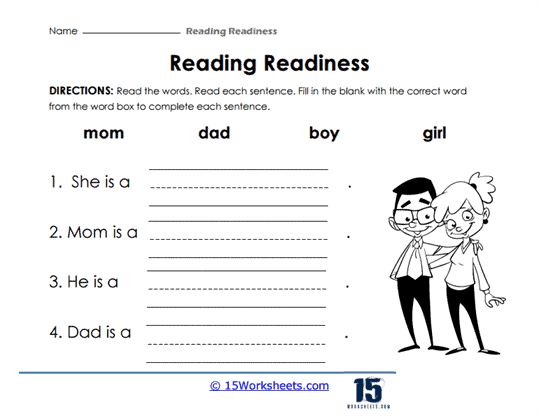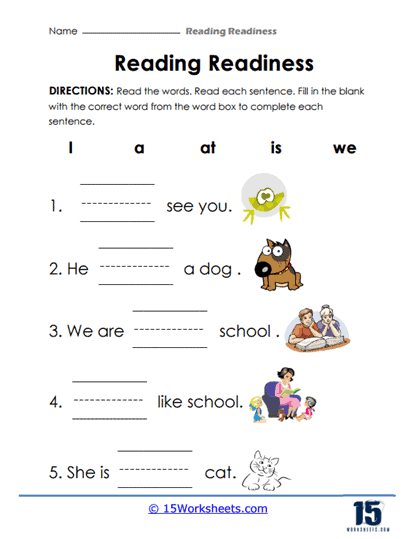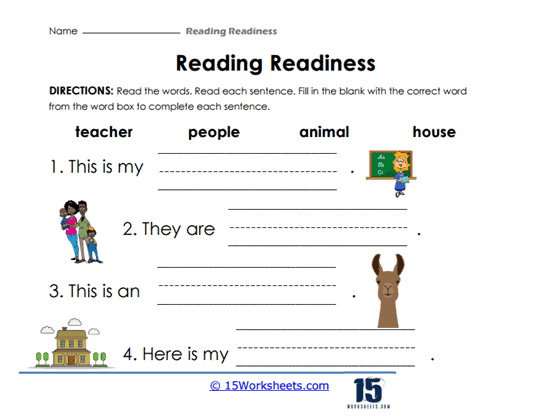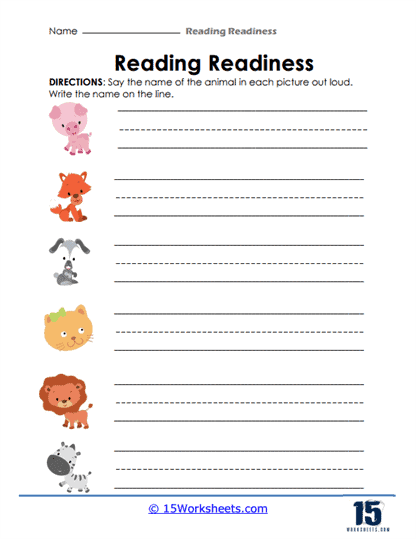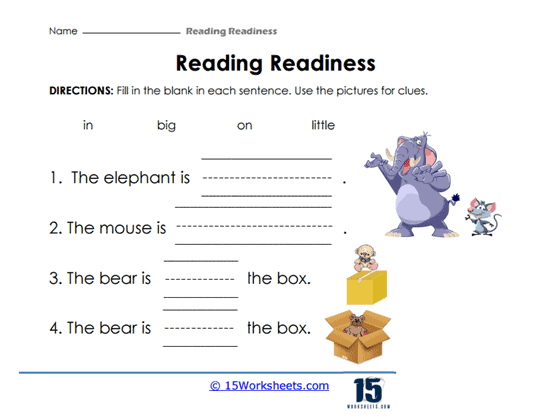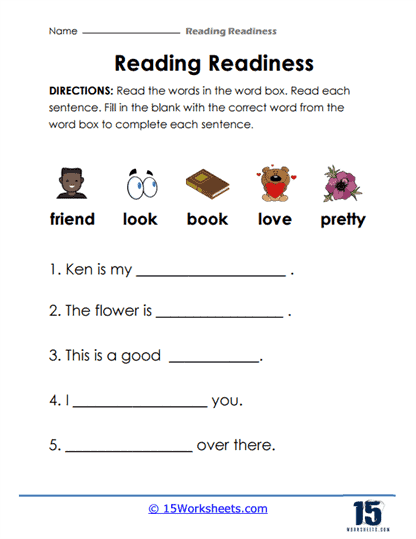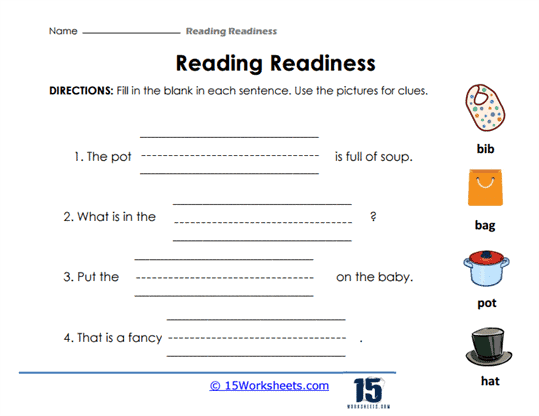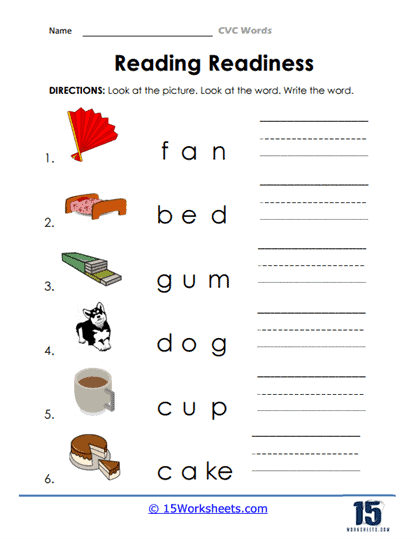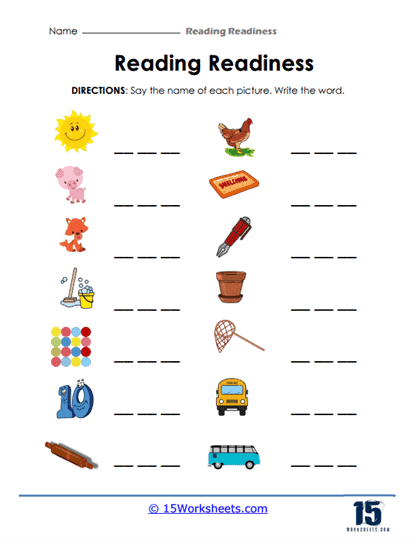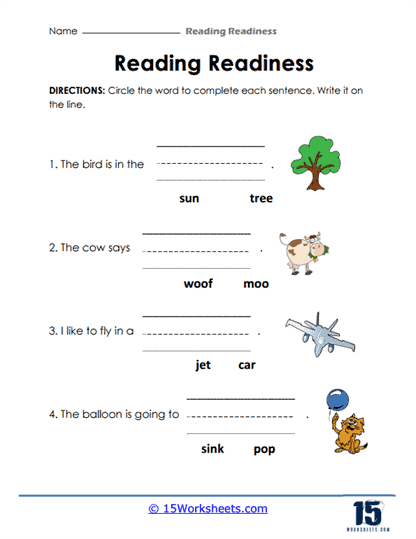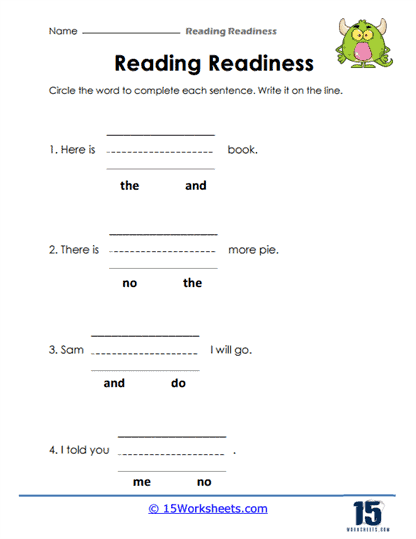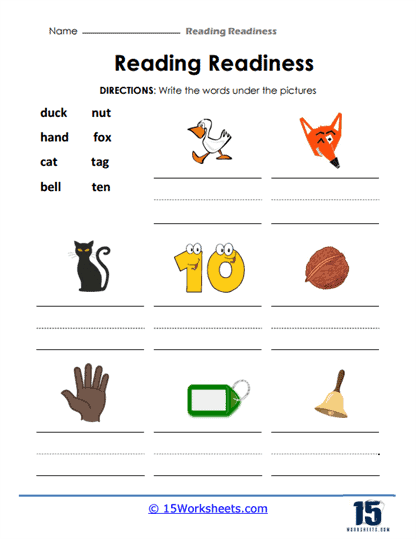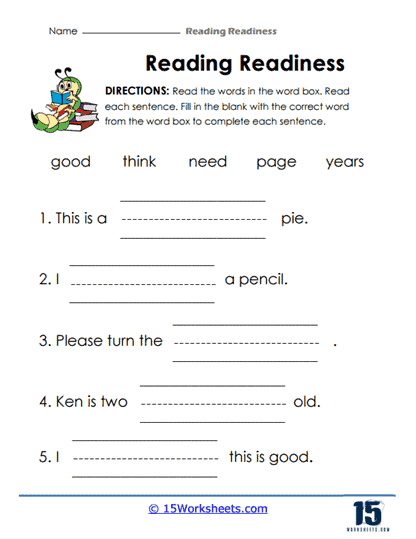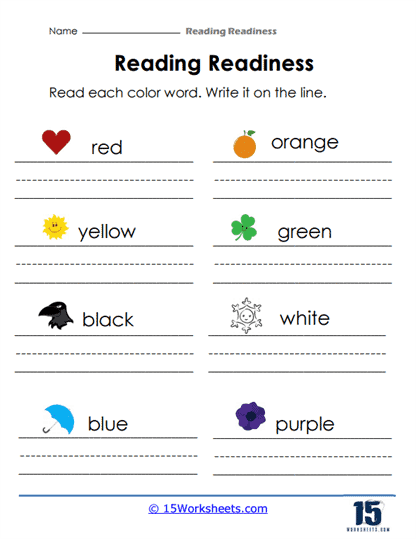Reading Readiness Worksheets
All About These 15 Worksheets
Prepare young learners for the exciting journey of reading with this comprehensive collection of Reading Readiness worksheets. This series is designed to develop essential skills that lay the foundation for successful reading, including letter recognition, phonological awareness, sight word recognition, and vocabulary development.
Through a variety of interactive exercises, students will engage in activities that promote pre-reading skills, such as letter tracing, phonics practice, sight word identification, and word-picture matching. These worksheets also provide opportunities for students to build a strong foundation in reading readiness, fostering a love for literacy and setting them on the path to becoming confident readers. Through these worksheets, students will:
- Fill in the missing words to complete sentences;
- Use pictures as visual cues to complete sentences, strengthening their understanding of word meaning and visual comprehension;
- Practice reading words and writing them;
- And identify and read common sight words, enhancing their sight word vocabulary and promoting automatic word recognition.
Through this engaging series of worksheets focused on reading readiness, young learners will develop the foundational skills necessary for successful reading. By participating in a variety of activities that promote letter recognition, phonological awareness, sight word recognition, and reading comprehension, students will strengthen their pre-reading skills and develop a love for literacy.
By engaging with these exercises, students will build a strong foundation in reading readiness, fostering confidence and setting the stage for future reading success. Ultimately, this collection serves as a stepping stone for lifelong learning, nurturing a lifelong love for reading and empowering students with the skills necessary for continued academic achievement.
What is Reading Readiness?
Reading readiness refers to the stage when a child is prepared to learn how to read. It involves the development of certain foundational skills and cognitive abilities that are necessary for successful reading. Reading readiness typically occurs between the ages of 4 to 6 years old, but it can vary depending on the child’s individual development and experiences.
Some key components of reading readiness include:
- Phonological Awareness – The ability to recognize and manipulate the sounds within spoken language, such as syllables, rhymes, and individual phonemes (the smallest units of sound).
- Alphabet Knowledge – Familiarity with the letters of the alphabet, including their names, shapes, and corresponding sounds.
- Print Awareness – Understanding the basic concepts of print, such as reading from left to right, top to bottom, and the idea that printed words represent spoken language.
- Vocabulary Development – Having a broad and growing vocabulary helps children understand and make meaning from the words they read.
- Listening Comprehension – The ability to understand and process spoken language, which serves as a foundation for reading comprehension.
- Fine Motor Skills – The development of fine motor skills, such as holding a pencil or turning pages, supports writing and other literacy-related tasks.
- Motivation and Interest – A child’s interest in and motivation to engage with books and reading materials contribute significantly to their reading readiness.
Parents, caregivers, and educators can support reading readiness by providing a rich language environment, exposing children to books and reading from an early age, engaging them in activities that build phonological awareness and vocabulary, and encouraging a love for reading through shared reading experiences.
It’s important to note that reading readiness develops at different rates for different children. Some children may be ready to read earlier, while others may need more time to develop the necessary skills. Patience, encouragement, and individualized support are key to fostering reading readiness and helping children become confident, successful readers.

